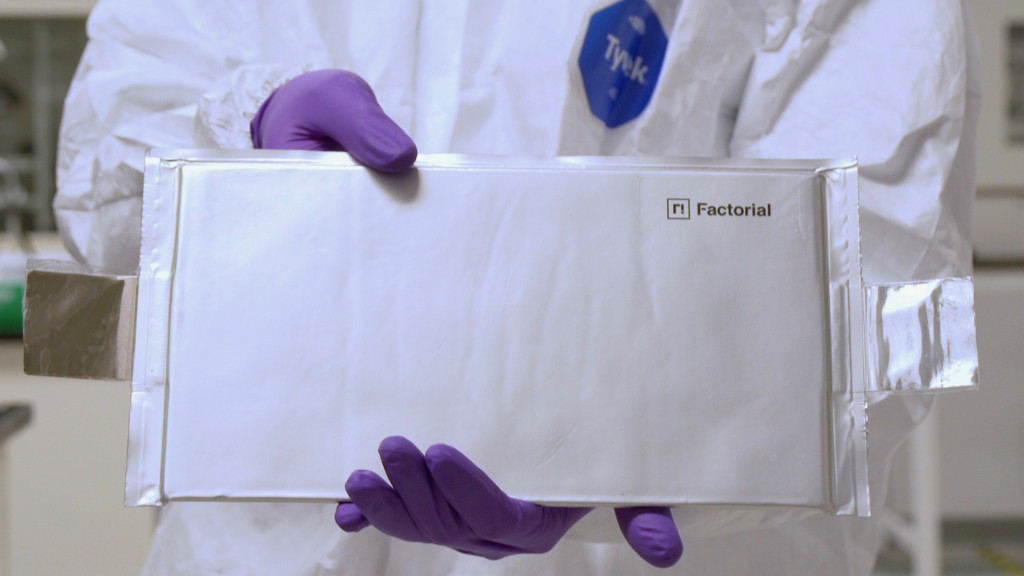Several years in, a partnership between Mercedes-Benz and battery firm Factorial is finally showing progress toward developing viable solid-state battery tech for EVs.
Factorial on Tuesday announced that its Solstice solid-state battery cell developed in collaboration with Mercedes could boost EV range by up to 80% through greater energy density. This allows for greater energy storage within a given volume, making for smaller battery packs that reduce vehicle weight and increase efficiency, Factorial noted.
Factorial solid-state cells
The range boost is even greater than the 50% Factorial discussed when it began providing test cells to automakers in 2022. The following year, Massachusetts-based Factorial opened what it billed as the largest U.S. solid-state EV battery plant yet in a Boston suburb. Factorial said at the time that the $50 million facility would eventually produce up to 200 megawatt-hours of batteries on its assembly line.
The Solstice cell’s sulfide-based solid electrolyte can also remain stable at temperatures above 194 degrees Fahrenheit, reducing cooling system requirements, according to Factorial. Like other solid-state battery firms, Factorial also claims lower risk of fires compared to liquid electrolytes.

Factorial Energy 40-amp-hour solid-state battery
Mercedes entered int the joint battery-development agreement with Factorial in 2021 and co-led a $200 million funding round for the company alongside Stellantis that was completed in 2022 (Hyundai has also invested in Factorial).
Other automakers are also funding solid-state battery tech, either through in-house development programs or partnerships with startups. Volkswagen has long backed QuantumScape, while Nissan and Toyota have been developing solid-state cells in-house. Toyota recently confirmed plans to begin manufacturing solid-state cells in 2026 as it attempts a tenfold boost in EV production.


